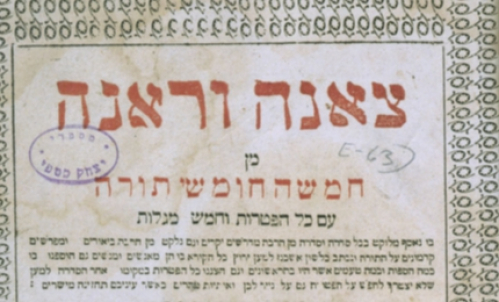"The Master's Tools": Jews and Music in Revolutionary Eastern Europe

|
Yiddish Civilization Lecture Series
Admission: Free |
James Loeffler | Delivered in English.
What does it mean to compose art music in Yiddish? Can the Western classical tradition be harmonized with traditional Ashkenazi aesthetics? Can Jewish culture exist without nationalism? In this lecture, James Loeffler will explore these questions through the story of the first generation of modern Jewish composers in the late Russian Empire who sought to bridge the shtetl and the conservatory in their imagination of modern Yiddish culture.
About the Speaker
James Loeffler is Jay Berkowitz Professor of Jewish History at the University of Virginia, where he also serves as the Ida and Nathan Kolodiz Director of the Jewish Studies Program. He writes widely on modern Jewish history from antisemitism to Zionism, with a focus on the overlooked ties between the Jewish past and the global present in politics, law, and culture. His 2018 book Rooted Cosmopolitans: Jews and Human Rights in the Twentieth Century won the American Historical Association’s 2019 Dorothy Rosenberg Prize for best book in the field of Jewish history and the Association for Jewish Studies 2019 Jordan Schnitzer Prize for best book in the field of modern Jewish history. His other books include The Most Musical Nation: Jews and Culture in the Late Russian Empire (Yale, 2010), which won eight major awards and honors, including from the Association for Jewish Studies, the Sami Rohr Prize, and the ASCAP foundation and a co-edited volume, The Law of Strangers: Jewish Lawyers and International Law in the Twentieth Century (Cambridge, 2019). His other writings include essays on East European Jewish history, the antisemitism of Richard Wagner and Frederic Chopin, the tangled roots of Israeli music, and international law. His writings have appeared in the New York Times, the Washington Post, the Wall Street Journal, Tablet, Mosaic, Haaretz, The New Republic, the Hedgehog Review, Time Magazine, and Slate.

